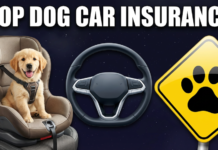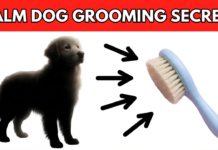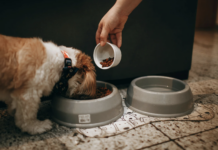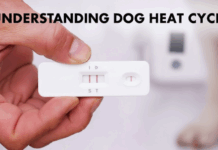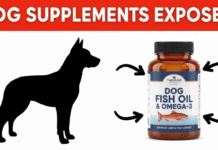Last Updated on July 13, 2023 by Dogs Vets
Your Home Remedies for Dog Scooting
As pet owners, we want our furry companions to be comfortable and healthy.
One common issue that affects dogs is scooting, which can be uncomfortable and embarrassing for both dogs and their owners.
In this comprehensive guide, we’ll explore the causes of dog scooting and share effective home remedies to address the issue, helping your dog feel better and preventing future episodes.
What is Dog Scooting?
Dog scooting is the act of a dog dragging its rear end across the floor or ground.
This behavior is usually a sign that your dog is experiencing discomfort, irritation, or itchiness in the anal area.
Scooting can be caused by various factors, and it’s essential to identify the underlying cause to implement the appropriate home remedies or seek professional veterinary care if necessary.
Why Do Dogs Scoot?
There are several reasons why dogs scoot, including:
- Anal Gland Issues: Dogs have two small glands located near their anus, which secrete a smelly fluid during defecation. Sometimes, these glands can become blocked or infected, causing discomfort and leading to scooting behavior.
- Parasites: Intestinal parasites, such as tapeworms, can cause itching and irritation around the anal area, prompting dogs to scoot.
- Allergies: Dogs can develop allergies to certain foods or environmental factors, leading to skin irritation and itchiness around the rear end.
- Injury or Infection: Trauma, inflammation, or infection in the anal area can cause pain and discomfort, resulting in scooting behavior.
- Foreign Objects: Occasionally, foreign objects such as grass seeds or debris can become lodged in the fur around the anus, causing irritation and scooting.
Home Remedies for Dog Scooting
Anal Gland Expression
If your dog’s scooting is due to impacted or infected anal glands, you may need to express them manually.
While some pet owners feel comfortable doing this at home, it’s always best to consult with a veterinarian or professional groomer for guidance. Regular anal gland expression can help prevent future issues and scooting behavior.
Fiber-Rich Diet
A fiber-rich diet can help promote healthy bowel movements and support the natural expression of your dog’s anal glands.
Foods such as pumpkin, sweet potato, and whole grains can be added to your dog’s meals to boost their fiber intake. Remember to introduce new foods gradually to avoid upsetting your dog’s stomach.
Probiotics
Adding probiotics to your dog’s diet can help support a healthy digestive system and potentially reduce scooting behavior caused by digestive issues.
Probiotics can be found in some dog foods or as a supplement in powder or capsule form.
If you’re searching for the best probiotics for dogs, Mighty Munch provides valuable insights and recommendations. Explore their guide to find the ideal probiotic solution to support your furry friend’s digestive health.
Talk to your veterinarian about the appropriate probiotic product and dosage for your dog.
Hygiene and Grooming
Regular grooming and hygiene practices can help reduce scooting behavior in dogs. Keeping the fur around your dog’s rear end clean and trimmed can prevent debris from becoming trapped and causing irritation.
Additionally, bathing your dog with a gentle, hypoallergenic shampoo can help soothe irritated skin and alleviate itchiness.
Herbal Remedies
Some herbal remedies may help reduce inflammation and soothe irritation in the anal area, potentially reducing scooting behavior.
Aloe vera gel, calendula, and chamomile are natural remedies that can be applied topically to the affected area. However, always consult with your veterinarian before using herbal remedies to ensure they are safe and appropriate for your dog.
Preventive Measures
Taking steps to prevent the underlying causes of scooting can be an effective way to minimize this behavior in your dog.
This includes maintaining a clean and parasite-free environment, providing a balanced and nutritious diet, and addressing allergies or sensitivities. Regular veterinary checkups can also help identify and treat potential issues before they become problematic.
When to Consult a Veterinarian
While home remedies can be helpful in addressing some causes of dog scooting, it’s essential to consult your veterinarian if your dog’s scooting behavior persists or worsens.
Your veterinarian can perform a thorough examination to determine the underlying cause and recommend the appropriate course of action. In some cases, medical intervention or prescription medications may be necessary.
Conclusion
Dog scooting can be uncomfortable for your pet and concerning for you as an owner. Identifying the underlying cause and implementing appropriate home remedies can help alleviate your dog’s discomfort and reduce scooting behavior.
Remember to consult your veterinarian for guidance and assistance in addressing your dog’s scooting issues, and always prioritize your pet’s health and well-being.
Frequently Asked Questions
-
Can scooting be a sign of worms in dogs?
Yes, scooting can be a sign of worms, particularly tapeworms. If you suspect your dog has worms, consult your veterinarian for diagnosis and treatment.
-
How often should I express my dog’s anal glands?
The frequency of anal gland expression varies depending on your dog’s needs. Some dogs may require expression every few weeks, while others may only need it every few months. Consult your veterinarian for guidance on your dog’s specific needs.
-
Can I use human probiotics for my dog?
While some human probiotics may be safe for dogs, it’s always best to consult your veterinarian before administering any supplements to ensure they are appropriate for your pet.
-
How can I tell if my dog has an allergy causing their scooting behavior?
Signs of allergies in dogs may include itching, skin redness, and scooting. Your veterinarian can help determine if your dog has an allergy and recommend appropriate treatment options.
-
Is scooting harmful to my dog?
While occasional scooting may not be harmful, persistent scooting can cause irritation and damage to the anal area. If your dog is frequently scooting, consult your veterinarian to address the underlying cause.
-
How can I prevent parasites in my dog that cause scooting?
Regular veterinary checkups, deworming, and flea and tick prevention can help keep parasites at bay and reduce the risk of scooting behavior.
-
Will changing my dog’s diet help with scooting?
A balanced, fiber-rich diet can help support healthy bowel movements and reduce scooting behavior caused by digestive issues. Consult your veterinarian for guidance on the appropriate diet for your dog.
Fact Check
We hope you enjoyed reading this article. What are your thoughts on the topic?
“At [Dogsvets.com], our goal is to bring you the most accurate and up-to-date information on all things pet-related.
If you have any additional insights or would like to advertise with us, don’t hesitate to get in touch.
If you notice any errors or discrepancies in our content, please let us know so we can correct them.
We welcome your feedback and encourage you to share this article with others.”




